Policies protecting those reporting discrimination
Westminster International University in Tashkent (WIUT) is committed to fostering an environment where all members can report instances of discrimination without fear of retaliation or disadvantage. Recognizing the importance of protecting those who come forward, WIUT has established comprehensive policies to ensure that individuals who report discrimination are safeguarded against any educational or employment repercussions. This policy draws on provisions from the Collective Agreement, emphasizing policy protection, whistleblowing procedures, and anti-retaliation measures.
Protective Measures
Provision 8.5: Protection of Labor Rights in Dispute Resolution
To protect employees who report discrimination, the Trade Union at WIUT plays a pivotal role by:
- Proactively establishing and assisting the activities of commissions that handle disputes related to discrimination.
- Participating as representatives of employees in direct negotiations with the employer to resolve discrimination disputes.
- Assisting union members in preparing applications to commissions or courts and gathering necessary materials for dispute consideration.
- Having Trade Union representatives serve as commission members to ensure fair proceedings.
- Aiding in implementing the decisions made by commissions to address discrimination issues effectively.
- Organizing training sessions to enhance the knowledge of commission members and employees on labor legislation and discrimination policies.
- Taking measures to include extra protections for commission members in the collective bargaining agreement, beyond what is established by current legislation.
Provision III: Appeal Procedure
WIUT provides a clear, structured grievance procedure designed to protect individuals reporting discrimination:
1. Informal Complaint Process
- Complaints should be filed within ten days of the discriminatory event.
- Employees are encouraged to discuss the grievance with their department head, director, or supervisor to seek a prompt resolution.
- Employees must utilize the informal procedure before initiating a formal complaint, fostering resolution at the earliest stage.
2. Formal Complaint Process
- After completing the informal process, employees may file a formal complaint with the Department of Human Capital Management within 30 days.
- The complaint must include a detailed description of the problem, supporting evidence, and the desired resolution, signed and dated by the employee.
- The supervisor must respond to the complaint within ten days, providing a written response on the complaint response form.
- The Director of Human Resources conducts a preliminary assessment, communicates with all relevant parties (including witnesses), and develops necessary recommendations.
- The Director communicates the decision to all parties involved, ensuring transparency and fairness.
- If the employee is dissatisfied with the decision, they may appeal to the Complaint Committee through the Department of Human Capital Management.
- The Committee reviews all documentation and issues a final decision within 20 days.
- The Director of Human Resources publishes the Committee's decision, concluding the formal grievance process.
Monitoring and Implementation
The Human Capital Management Department, Trade Union, and Grievance Committee are jointly responsible for implementing and monitoring this policy. Continuous evaluation and procedure updates ensure the policy remains effective and aligned with best practices.

